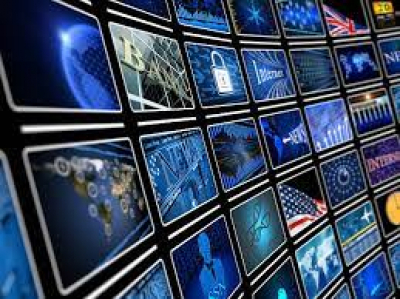Navigating the Impact of Automation on Employment
As the inexorable march of technology advances, the specter of artificial intelligence (AI) encroaching upon traditional job roles looms ever larger. In her seminal work "The Algorithm," Hilke Schellmann delves into the intricacies of this transformative phenomenon, shedding light on why AI's integration into the workforce isn't merely speculative—it's inevitable.
Drawing upon a decade of journalistic experience, I explore the multifaceted dimensions of AI's ascent, dissecting its implications for industries, economies, and individuals worldwide. From the factory floor to the corner office, no sector is impervious to the disruptive potential of automation. However, far from being a harbinger of doom, the rise of AI presents an opportunity for adaptation and evolution.
Embracing Change: Adapting to the AI Revolution
In the face of unprecedented technological upheaval, resistance is futile. Instead, organizations must adopt a proactive stance, harnessing AI's capabilities to optimize workflows and enhance productivity. Through strategic deployment and upskilling initiatives, employees can transition from adversaries to allies in the age of automation. Embracing change is not merely a survival strategy—it's a prerequisite for thriving in the digital era.
Redefining Roles: The Evolution of Employment in the AI Era
Contrary to popular apprehensions, the proliferation of AI does not spell the demise of human labor; rather, it heralds a reconfiguration of job roles and responsibilities. As routine tasks are automated, workers are liberated to focus on higher-order functions such as creativity, critical thinking, and interpersonal communication. By cultivating uniquely human skills, individuals can carve out niches that remain impervious to algorithmic encroachment.
Ethical Imperatives: Safeguarding Humanity in an Automated World
Amidst the fervor of technological progress, it is imperative not to lose sight of ethical considerations. From algorithmic bias to privacy concerns, the integration of AI into society necessitates robust safeguards to protect against unintended consequences. By prioritizing transparency, accountability, and inclusivity, we can ensure that the benefits of automation are equitably distributed, fostering a more just and humane future for all.
Empowering the Workforce: Democratizing Access to AI Education
As AI assumes an increasingly ubiquitous role in our lives, democratizing access to education becomes paramount. By equipping individuals with the requisite skills and knowledge to navigate the digital landscape, we can mitigate the risk of exacerbating existing inequalities. From online courses to vocational training programs, initiatives aimed at fostering AI literacy empower individuals to seize opportunities and surmount challenges in the ever-evolving job market.
In the grand tapestry of human progress, the advent of AI represents not a threat, but a promise—a promise of unparalleled efficiency, innovation, and prosperity. By embracing change, redefining roles, upholding ethical imperatives, and empowering the workforce, we can harness the transformative potential of AI to create a future that is not only technologically advanced but also inherently human. The algorithmic revolution is upon us—let us rise to meet it, with courage, ingenuity, and unwavering resolve.
In the grand tapestry of human progress, the advent of AI represents not a threat, but a promise—a promise of unparalleled efficiency, innovation, and prosperity. By embracing change, redefining roles, upholding ethical imperatives, and empowering the workforce, we can harness the transformative potential of AI to create a future that is not only technologically advanced but also inherently human. The algorithmic revolution is upon us—let us rise to meet it, with courage, ingenuity, and unwavering resolve. As we navigate the intricate intersections of man and machine, let us forge a path forward that is marked by collaboration, compassion, and collective ingenuity. In doing so, we can not only weather the storm of automation but emerge stronger, more resilient, and more united than ever before.




